I'm increasingly convinced that science fiction, or more broadly, "speculative fiction"
is a powerful philosophical tool. The specificity of the possibilities
considered, and its emotional and imagistic power, engages parts of the
mind that more abstract forms of speculation leave hungry. Possibilities
are livened, affecting how we think about them.
Suppose you agree. What might you want to read (or watch)?
A couple dozen professional philosophers who enjoy SF, and two SF
writers with graduate training in philosophy, have agreed to offer me
lists of ten "personal favorite" works of philosophically interesting
SF, along with brief "pitches" pointing toward the works' philosophical
interest. I'll be rolling out these lists four at a time on the blog.
At the end, I will compile a mega-list of all the lists, as well as
some observations about the aggregate results.
I emphasize that individuals' lists are not intended as thoroughly researched "top ten" lists -- just suggestions of some works that the contributors have enjoyed and found philosophically engaging.
If you are a professional philosopher (or an SF writer with graduate
training in philosophy) and you would like to contribute a list, email
me. (Corrections are also welcome.)
Any reader who wishes to add one or more suggested works to the comments section, please feel free!
So, the first four lists:
----------------------------------------------
List from Josh Dever (Associate Professor of Philosophy, University of Texas at Austin):
Mark Danielewski, House of Leaves (novel, 2000). The opening of chapter 4 is a beautiful test case in whether a tiny datum can drive a massive theory change.
Samuel Delany, Dhalgren and Triton (novels, 1975
and 1976). Explorations of just about every imaginable alternative
sociological and political structure and theory.
Philip K. Dick, Radio Free Albemuth (novel, 1976). Time
stopped in the first century AD, and restarted in 1945. Come up with a
theory of time to make that consistent!
Russell Hoban, Riddley Walker (novel, 1980). Like that
Star Trek episode “Darmok”, except, you know, good. Also, best
post-apocalyptic novel ever by a significant author of children’s
literature.
Sigizmund Krzhizhanovsky, “Quadraturin” (short story,
192-something). There’s a superabundance of science fiction about weird
physics and metaphysics of time, but a disappointing dearth of the same
with space. This is an exception.
Ursula K. Le Guin, “The Author of the Acacia Seeds, and Other
Extracts from the Journal of the Association of Therolinguistics” and
“The Ones Who Walk Away From Omelas” (short stories, 1982 and 1973).
The first: always nice when science fiction remembers that linguistics
is a science. The second: a powerful counterexample, but note only to
certain forms of consequentialism. Think of it as an argument for good
social choice theory.
China Miéville, Embassytown and The City & The City
(novels, 2011 and 2009). The first is a fun, if a bit clunky, bit of
exploratory philosophy of language. The second is a particularly
adventurous instance of exploratory metaphysics.
Thomas Pynchon, Mason & Dixon, Episode 19 (portion of a
novel, 1997). The story of the missing eleven days resulting from the
transition from the Julian to the Gregorian calendar. More fun
metaphysics of time, plus a bit of philosophies of language and gender.
David Foster Wallace, Infinite Jest (novel, 1996).
Philosophy by virtue of mentioning “Montague Grammar and the Semantics
of Physical Modality”, science fiction by virtue of being set in the
Year of the Depend Adult Undergarmet, fun by virtue of including
basically everything in between.
H.G. Wells, “The Remarkable Case of Davidson’s Eyes” (short story, 1895). The definitive counterexample to immunity to error through misidentification.
----------------------------------------------
List from Lewis Powell (Assistant Professor of Philosophy at University at Buffalo, SUNY)
Leonard Richardson, Constellation Games (novel, 2012):
Aliens make first contact, and Ariel Blum’s first reaction is to hope
that they’ll let us play their video games. They do. The novel is much
better than this premise would lead you to expect. Examines issues in
social/political philosophy concerning scarcity of resources (and
post-scarcity societies), anarchism and social organization, the
(dis)value of immortality, and the role of art and games in human life.
Ursula K. Le Guin, The Dispossessed (novel, 1974): A
gripping story investigating a society that has embraced and
internalized a full-blown communalism. Examines issues of privacy and
property, and the individual’s relationship to society.
Ursula K. Le Guin, The Left Hand of Darkness (novel,
1969): first contact story about someone encountering a society with
radically different manifestations of gender roles, sexuality, and
social norms. Examines issues of gender and sexuality, as well as love
and friendship.
Ted Chiang, “Hell is the Absence of God” (short story, 2001):
Story set in a world where everyone has concrete evidence of the
existence of God and an afterlife, but no better understanding of why
there is suffering. Examines issues in philosophy of religion,
epistemology, the problem of evil and divine hiddenness.
Ted Chiang, “Division By Zero” (short story, 1991): one of the
few works I’ve seen of mathematical science fiction (rather than
empirical science fiction), impressive treatment of the possibility that
arithmetic is inconsistent.
Ted Chiang, “Story of Your Life” / “Evolution of Human Science”
(short stories, 1998/2000): These stories are very different, but both
raise fascinating questions about the nature of science, the role of
humans in science, and the consequences of dealing with scientific
progress that exceeds the understanding of individual humans.
PD James/Alfonso Cuaron, The Children of Men (novel,
1992/movie, 2006): While there are a number of plot differences between
the film and the book, both do an excellent job of investigating
reactions to an existential threat to humanity arising from total
infertility.
Star Trek: The Next Generation, “Who Watches the Watchers” / “First Contact” / “Thine Own Self”
(tv episodes, 1989/1991/1994): The prime directive (non-interference
with less advanced civilizations) is one of the most fascinating
elements from Star Trek. These episodes do an excellent job of
exploring the ethics of non-interference and undisclosed observation,
and raise questions about the withholding of beneficial advances
required by it.
Mary Shelley, Frankenstein (novel, 1818): It seems almost
unnecessary to list this work, which is such a widely read classic.
Shelley’s tale of the “modern Prometheus” does an exceptional job of
raising questions about the nature of humanity and the ethics of
creating life.
China Miéville, Embassytown (novel, 2011): A novel about
people trying to interact with an alien race who think and communicate
in a fundamentally different manner than us. A more sophisticated take
on this concept than the TNG episode Darmok, and with considerably more
interest for philosophers of language.
----------------------------------------------
List from Amy Kind (Professor of Philosophy, Claremont McKenna College) (short stories only):
Isaac Asimov, “Evidence” (1946). Probes the plausibility of the Turing Test.
Jorge Luis Borges, “The Immortal” (1947). An intriguing
exploration of why immortality may not be quite what we’d bargained for;
pairs well with Bernard Williams’ “The Makropulos Case: Reflections on
the Tedium of Immortality.”
Octavia Butler, “Bloodchild” (1995). Explores the nature of gender roles via a story about an alien race who need humans for procreative purposes.
Arthur Clarke, “The Nine Billion Names of God” (1953). Could God’s having a purpose for us provide our lives with meaningfulness?
Greg Egan, “The Infinite Assassin” (1991). How are we related to our counterparts throughout the multiverse?
Lois Gould, “X: A Fabulous Child’s Story” (1972). What role does gender identity play in our lives? What would life be like without it?
Ursula K. Le Guin, “Nine Lives” (1968). What is it like to be a
clone? And more specifically, what is it like to have one’s connection
to other clones severed after having been raised together with them?
John Morressy, “Except My Life3” (1991). Another story probing
questions of identity via consideration of what life might be like when
you’re one of a set of closely connected clones.
Norman Spinrad, “The Weed of Time” (1970). What would it be like to experience time in a non-linear fashion?
Roger Zelazny, “For a Breath I Tarry” (1966). A beautiful
depiction of a machine’s quest to understand what it is like to be
human. (See also Isaac Asimov’s novella, Bicentennial Man and Kurt Vonnegut’s “EPICAC”)
----------------------------------------------
List from Steven Horst (Chair of Philosophy, Wesleyan University)
C.S. Lewis, Space Trilogy (Out of the Silent Planet / Perelandra / That Hideous Strength
(novels, 1938-1945). Notable for using the sci-fi genre to explore
Christian ideas of the fall, intelligent aliens, angels, celestial
intelligences, magic, and the dangers of totalitarianism wrapped in the
mantle of science.
Neal Stephenson, The Baroque Cycle (Quicksilver / The Confusion / The System of the World
(novels, 2003-2005). Set as historical novels and developed around the
core of interactions between Newton and Leibniz, explores the origins
of modern systems of science and finance in counterpoint with alchemical
memes.
Neal Stephenson, Anathem (novel, 2008). At the risk of a
major spoiler, this book explores ideas of the quantum multiverse, with
the added bonus that some characters are stand-ins for the views of
people like Husserl, Gödel, and Bohr.
Madeline L’Engle, A Wrinkle in Time / A Wind in the Door / A Swiftly Tilting Planet
(novels, 1962-1978). This may have been my first introduction to
science fiction as a child, and while it is not the most intellectually
challenging series about time travel (and dimensional travel, in the
case of the memorable Cherubim that is both singular and plural), it is
perhaps still the most memorable and endearing.
Andy & Lana Wachowski, The Matrix (movie, 1999). Not
only the most influential movie about virtual reality, but one that
implicitly poses interesting questions about what counts as “real”, as
the Matrix-world is both the world we assume to be reality and is
thoroughly intersubjective.
Larry Niven, Ringworld and sequels (novels, starting
1970). An enormous engineered world encircling a distant star provides a
context for exploration of the variability of the human phenotype and
contrasts with two alien species and a third that turns out to not be as
alien as we first imagine.
Star Trek: The Next Generation, “The Measure of a Man” (TV
episode, 1989). The trial to determine whether the Android Data is a
person or the property of Star Fleet provides the context for an
engaging exploration of personhood and artificial life.
Battlestar Galactica (TV series, 2003-2009). Over six
seasons, we are drawn into an increasingly complicated dialectic about
the original metallic Cylons, the Cylon “skin jobs”, and by implication,
the nature of humanity and personhood, as well as some teaser forays
into shared virtual reality that were to be explored in the uncompleted
prequel series Caprica.
Fred Hoyle, The Black Cloud (novel, 1957). The late
British astronomer’s novel starts out looking like a novel about a
disaster from deep space, but takes a turn to explore the prospects of
communication with an alien intelligence very different from ourselves.
J.R.R. Tolkien, “Ainulindalë” (in The Silmarillion,
published 1977). Tolkien’s Neo-Platonic creation myth puts the rest of
the stories about Middle Earth in a distinctly different cosmic context,
hints of which can be seen in the better-known works only after one has
read the cosmic “backstory”.
List from Pete Mandik (Professor of Philosophy, William Paterson University, and co-host of SpaceTimeMind):
Peter Watts, Blindsight (novel, 2006). Cogsci savvy tale
in which assorted transhumans and extraterrestrials get by just fine
without phenomenal consciousness...or do they?
Ted Chiang, “Understand” (short story, 1991) Thorough and
convincing first-person phenomenology of human super
intelligence--you’ll feel like you know what it’s like to get your IQ
quadrupled overnight.
Greg Egan, Diaspora (novel, 1997) Living indefinitely long
as a godlike digital posthuman is all well and good, and when you run
out of physical universe(s) to explore, there’s solace to be had in
math.
Black Mirror, “Be Right Back” (TV show, 2013) Digital
simulacra of the recently departed may be exactly what the
grief-stricken don’t want but can’t help but seek.
Bruce Sterling, Schismatrix Plus (novel, 1995) Deeply
weird political and economic turmoil in a solar system infested by post
human factions (genetically engineered vs cyborgs) and, eventually,
extraterrestrial investors.
David Gerrold, The Man Who Folded Himself (novel, 1973)
Exhaustive exploration of time-travel enabled narcissistic
self-indulgence: meet, greet and *expletive deleted* your temporal
counterparts.
Charles Stross, Accelerando (novel, 2005) Nothing else
that I’ve read comes as close to this in depicting what living through
the technological singularity would be like; "mind-bending future shock”
is an insufficiently hyperbolic superlative.
Warren Ellis, Transmetropolitan, “Another Cold Morning”
(comic book, 1998) Harsh and grim fistful of future shock depicting
waking up from cryo stasis into an overwhelming future that has zero use
for you.
Tom Scott, “Welcome to Life: The Singularity, Ruined by Lawyers”
(YouTube video, 2012) Everyone can have digital immortality, but not
everyone can afford a version unsullied by direct brain advertising.
Roger Williams, The Metamorphosis of Prime Intellect
(novel, 1994) A virtual god, subservient to Asimov’s laws of robotics,
emerges from the technological singularity, and the ensuing cosmic
paternalism puts every human into a heaven they desperately want out of,
despite (or because of) all the sex and ultraviolence.
----------------------------------------------
List from Eric Kaplan (TV writer and blogger who did philosophy grad work at U.C. Berkeley):
Olaf Stapledon, Star Maker (novel, 1937) -- What is the purpose of life and history?
Gene Wolfe, The Hero as Werewolf (novel, 1991) -- What is evil? What is the role of universalizability in ethics?
Futurama, “Why Must I be a Crustacean in Love?” (TV episode, 2000) -- What's the relationship between ethics and sociobiology?
Futurama, “Hell is Other Robots” (TV episode, 1999) --
Feuerbach thesis of the origin of religion -- is religion a human
creation and if so what purpose does it serve?
Algis Budrys, Rogue Moon (novel, 1960) -- What is personal identity?
Isaac Asimov, The Gods Themselves (novel, 1972) -- What is personal identity?
Theodore Sturgeon, Maturity (short stories, 1947-1958) -- What is the purpose of life? What is a well-lived life?
Lewis Padgett, “Mimsy Were the Borogoves” (short story, 1943) -- Are other conceptual schemes possible?
Eric Rücker Eddison, The Worm Ouroboros (novel, 1922) -- Nietzsche and the myth of the eternal return -- the heaviest thought.
G. K. Chesterton, The Man Who Was Thursday (novel, 1908) -- Theodicy -- why would a good God allow evil?
Alice Bradley Sheldon / James Tiptree, Jr., “A Momentary Taste of Being” (short story, 1975) -- biology and the purpose of life.
----------------------------------------------
List from Simon Evnine (Associate Professor of Philosophy, University of Miami):
Octavia Butler, Parable of the Sower (novel, 1993). Gender roles, and the significance of empathy in discharging our responsibilities for each other.
Michael Flynn, Eifelheim (novel, 2006). Aliens appear in a medieval German village; a deep reflection on love and sacrifice.
Russell Hoban, Riddley Walker (novel, 1980). Hermeneutics:
In the far future, a story about people trying to make sense of their
distant past (us), told in an invented dialect that makes it equally a
problem for us to make sense of them.
Liz Jensen, The Uninvited (novel, 2012). The nature of the adult world, and its relation to children and the future.
Ann Leckie, Ancillary Justice (novel, 2013). Having a
divided mind, and the existence of social divisions, take on a whole new
meaning when agents are composed of multiple people.
Ursula Le Guin, The Left Hand of Darkness (novel, 1969).
The meaning of gender is explored when a male protagonist comes to a
planet inhabited by humans who change their gender naturally.
Doris Lessing, The Fifth Child (novel, 1988). How do we deal with the intolerable when we have an obligation to care for it?
Vernor Vinge, A Fire Upon the Deep (novel, 1992). A story
involving a variety of kinds of minds, including transcendent minds,
human minds infused by transcendent minds, and group minds.
Sarah Waters, The Little Stranger (novel, 2009). How well do we know ourselves?
Gene Wolfe, The Book of the New Sun (4 novels, 1983). A haunting work about the experience of finitude.
----------------------------------------------
List from Helen De Cruz (Postdoc in Philosophy, University of Oxford, and blogger):
Ursula Le Guin, Left Hand of Darkness (novel, 1969). Explores a society where its inhabitants do not have a gender.
Daniel F Galouye, Dark Universe (novel, 1961). What's it
like to be blind, not just to be blind but to live in a world where
everyone is blind and relies on echolocation?
Daniel F. Galouye, Simulacron-3 (novel, 1964). There are several books and movies on the brains in a vat/deceiving demon theme (e.g., most famously, The Matrix), but if I had to pick a favorite, this would be it.
Roger Zelazny, Lord of Light (novel, 1967). Features
naturalistic versions of Hindu gods and reincarnation. Can the status
quo be challenged by introducing Buddhism?
Robert Heinlein, The Moon Is a Harsh Mistress (novel,
1966). Heinlein's lunar society exhibits his libertarian ideas, as well
as the view that there's no such thing as a free lunch (expressed in the
awkward acronym TANSTAAFL)
Robert Heinlein, “Jerry Was a Man” (short story, 1947). Ponders
the issue of human rights for nonhuman animals and what it means for
someone to be human, with the protagonist, a genetically-modified
chimpanzee.
Richard Garfinkle, Celestial Matters (novel, 1996).
Assumes that ancient science describes accurately how the world works -
so we have things like Aristotelian physics, spontaneous generation,
taoist Chinese alchemy, and geocentrism with real spheres in space.
Daniel Keyes, Flowers for Algernon (novel, 1966). On personal identity and mental disability.
P.D. James, Children of Men (novel, 1992). Social criticism and theological reflection focusing on the results of mass infertility.
Richard Matheson, I Am Legend (novel, 1954). If you're
the last surviving human in a vampire-apocalypse, does it make sense to
want to survive? And who is the monster, to be feared, in a new world
populated by vampires?
Sources : http://schwitzsplinters.blogspot.co.uk/2014/09/philosophical-sf-science-fiction.html et http://schwitzsplinters.blogspot.com/2014/10/philosophical-sf-second-batch-of-lists.html
Inscription à :
Publier les commentaires (Atom)
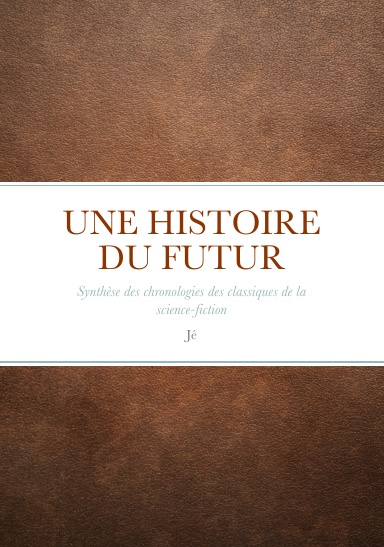

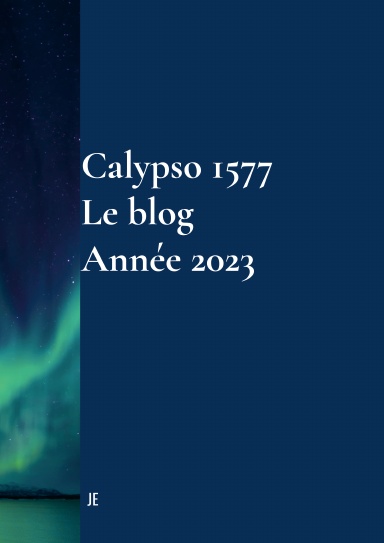
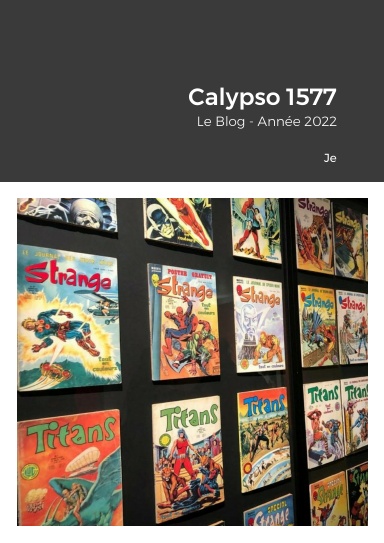
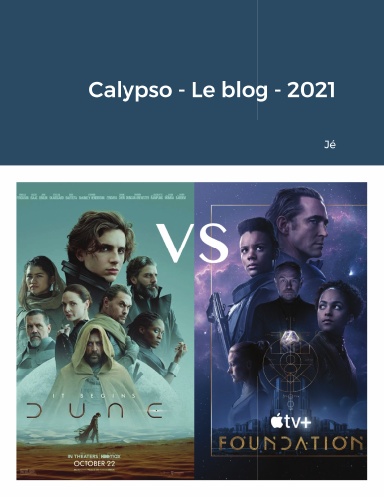
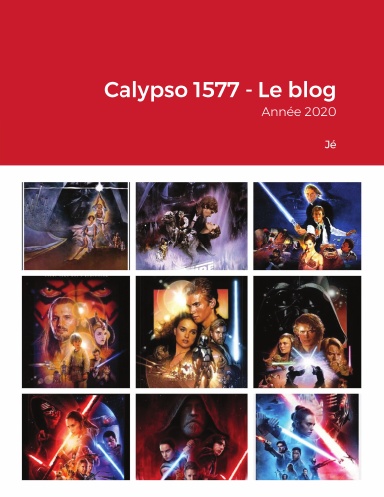












1 commentaire:
Speculative fiction is a broad category of narrative fiction that includes elements, settings and characters created out of imagination and speculation rather than based on reality and everyday life. It encompasses the genres of science fiction, fantasy, science fantasy, horror fiction, superhero fiction, alternative history, and magic realism. It typically strays strongly from reality and so may feature fictional types of beings like mythical creatures and supernatural entities, technologies that do not exist in real life like time machines and interstellar spaceships, or magical or otherwise scientifically inexplicable elements. The term's popularity is sometimes attributed to Robert Heinlein, who referenced it in 1947 in an editorial essay, although there are prior mentions of speculative fiction, or its variant "speculative literature".
Enregistrer un commentaire